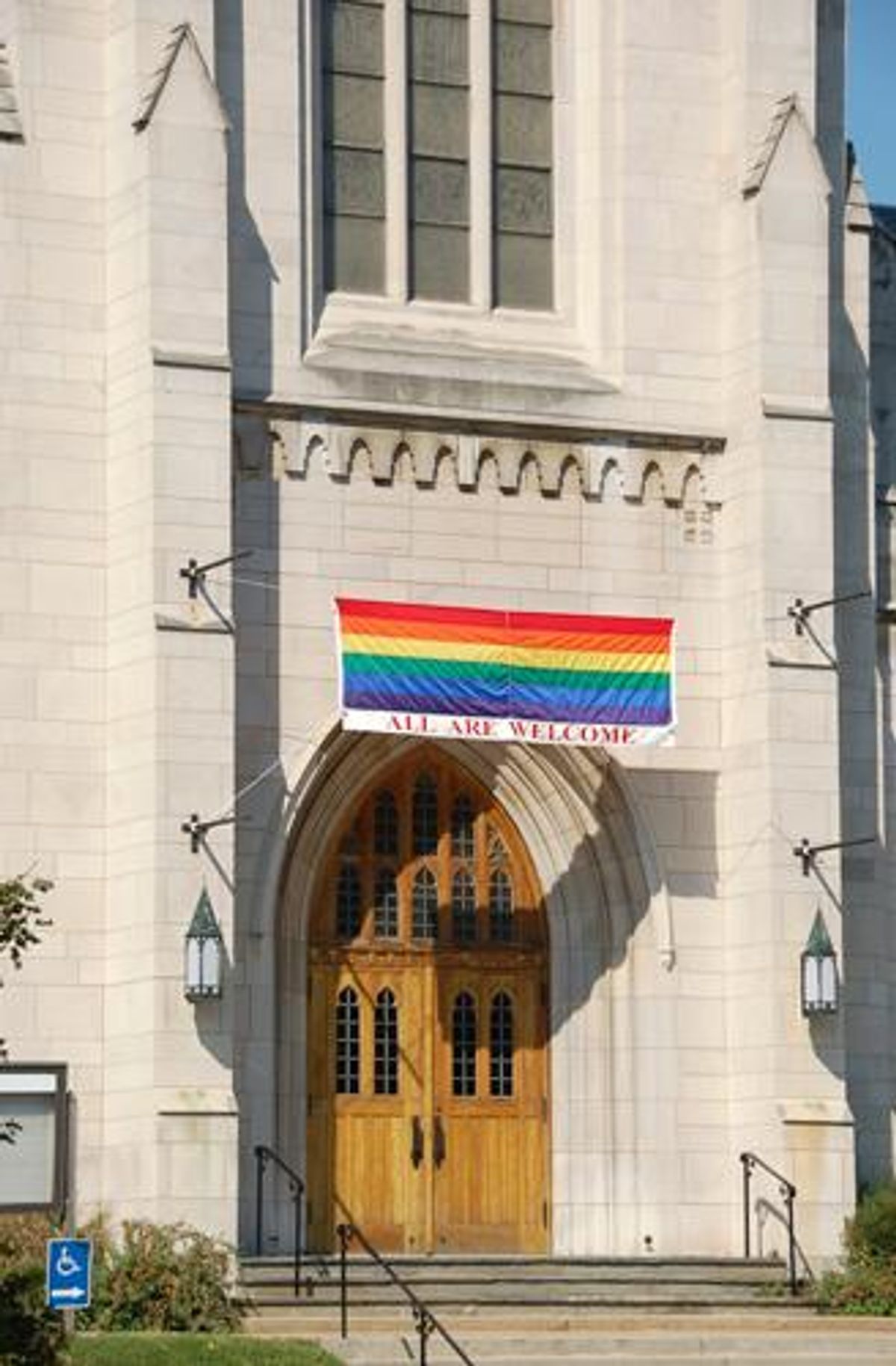
Can religious exemptions still knock the wind out of ENDA's sails?
November 19 2013 5:00 AM EST
November 17 2015 5:28 AM EST
By continuing to use our site, you agree to our Private Policy and Terms of Use.

As is now well known, history was recently made in the U.S. Senate with the 64-32 vote to pass the Employment Non-Discrimination Act. In the hours leading up to this landmark moment for LGBT Americans, senators by a vote of 55-43 rightly rejected an attempt to expand ENDA's religious exemption. The amendment, proposed by Republican Patrick Toomey of Pennsylvania, would have created an entirely new rule that it isn't a part of any other federal or state law barring workplace discrimination. It could have allowed even for-profit companies (your friendly neighborhood Chick-fil-A, for example) to discriminate against LGBT workers and applicants if the owners claimed the business was "affiliated" with a particular religion.
The bipartisan rejection of the Toomey Amendment was a critical victory against efforts to misuse religious liberty as a license to discriminate against LGBT people. However, before we engage in too much self-congratulation, it is important to remember that ENDA's existing religious exemption remains cause for concern.
In an op-ed I wrote for The Advocate in May, I explained that ENDA's religious exemption could provide religiously affiliated organizations -- far beyond houses of worship -- with a blank check to engage in employment discrimination against LGBT people. It would allow these organizations to discriminate on the basis of sexual orientation and gender identity under ENDA -- in any job and for any reason. Right now these organizations are allowed to prefer people of their own faith so that the organizations can require those who carry out their work to share their faith. But the organizations are not allowed to discriminate based on sex, race, or national origin under existing law. So the ENDA exemption essentially says that anti-LGBT discrimination is different -- more legitimate -- than discrimination against individuals based on their race or sex.
Magnifying these concerns is the reality that some courts have, for example, said that religiously affiliated hospitals count as "religious organizations" that would be eligible for the exemption. The implications for LGBT workers at these hospitals are stark. A hospital often employs hundreds, if not thousands, of workers, and may be one of the largest employers in a particular city or town. Should ENDA exclude from its protections LGBT doctors, nurses, clerical staff, janitors, and cafeteria employees simply because they work at a hospital with a religious affiliation?
More troubling still, what happens to these same employees if they work at a hospital with no religious affiliation (and thus would be protected under ENDA) that then merges with a religiously affiliated hospital? Would they lose their protections from workplace discrimination overnight?
Unfortunately, these are not idle concerns. Recent research shows that nearly 14 percent of hospitals in the U.S. are religiously sponsored. And, earlier this year, The New York Times reported on the increasing trend of secular hospitals merging with Catholic hospitals.
Speaking on the Senate floor last week, Connecticut senator Chris Murphy, a Democrat, said he shares concerns that have been raised about ENDA's existing religious exemption, and he cited an op-ed published in Politico by Julian Bond, chairman emeritus of the NAACP. In his op-ed Bond draws a parallel between current efforts to misuse religious liberty to undermine LGBT equality and what he witnessed firsthand by opponents of civil rights in the 1960s. Noting that prior attempts to extend a blank check to discriminate were rejected, Bond wrote, "At this critical moment in history, we should also come together to make clear that our LGBT brothers and sisters deserve full equality under the law, not just 80 percent."
At the end of the day, this is what it is all about. If individuals and organizations are given license to misuse religious liberty to undermine and erode equality under the law for LGBT Americans because discrimination against the LGBT community is different, more legitimate, can we rightfully claim the mantle of full equality? As ENDA continues to move forward and pressure mounts on the House of Representatives to act, it is critically important to ensure that it, like other landmark civil rights laws before it, protects as many people as possible from indefensible workplace discrimination.
IAN THOMPSON is a legislative representative on issues related to LGBT rights in the American Civil Liberties Union's Washington Legislative Office and can be reached on Twitter @iantDC.